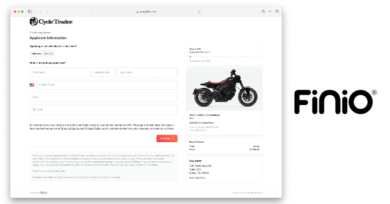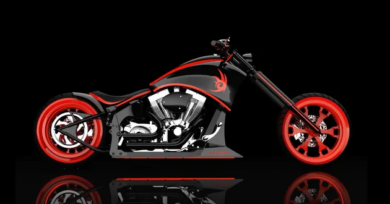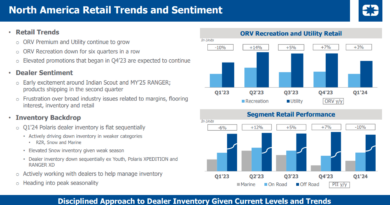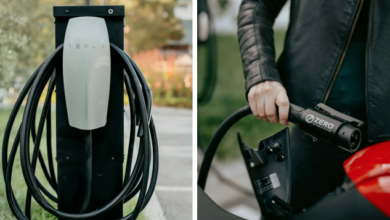Wholesale or retail: Who’s driving who?
 When I decided on this topic for my next blog, I wasn’t sure if I was writing it for dealership owners and managers … or for OEMs and their DSMs. It’s an important subject because an understanding of the relationship between wholesale and retail helps build a foundation for a strong, healthy relationship between a dealership and its suppliers. With that in mind, I realized I was writing for both.
When I decided on this topic for my next blog, I wasn’t sure if I was writing it for dealership owners and managers … or for OEMs and their DSMs. It’s an important subject because an understanding of the relationship between wholesale and retail helps build a foundation for a strong, healthy relationship between a dealership and its suppliers. With that in mind, I realized I was writing for both.
I sat in on a meeting recently that involved a dealership and one of its DSMs, and the discussion turned to everyone’s favorite topic — market share. It’s such an uplifting experience, isn’t it? Can you remember how many times you’ve been asked how you are able to be above regional share numbers? Rather, have you lost count of how many times you’ve been asked why you can’t reach or maintain regional share numbers?
It’s a classic conversation that happens everyday across the continent when reps visit a dealership. Market share is very important to manufacturers. They budget and plan around those numbers and eventually, use those numbers for booking purposes with their dealers. Speaking as a former district manager, a rep will refer to market share numbers in justifying your targets, and some dealers will use those same numbers to justify not booking more product. I call it the booking dance, and many get tired of this dance that happens a few times every year.
Getting back to the meeting I attended, the conversation got more lively as it progressed from market share to retail programs and how their effectiveness helps or hinders market share. That’s when the OEM rep stated that more inventory was needed in the store because wholesale drives retail. I was stunned when that statement was made. Apparently, more inventory means more retail sales. Who knew!? I had to excuse myself from the meeting before I blurted out that 1972 was calling, and they wanted their sales philosophy back.
If this particular rep believed that in 2017 wholesale drives retail, then there must be others who also believe that. Let’s get something straight right now: Wholesale doesn’t drive retail. Retail drives wholesale. During that role as a district manager, I sat in a boardroom meeting with my colleagues, as well as management, and the discussion was how to improve market share. It was noted how strong our booking programs were with strong floorplan, a solid demo program and incentives for hitting certain levels or taking delivery early. So why was this not translating into stronger market share? I piped up and stated that wholesale doesn’t drive retail. Retail drives wholesale. I explained that consumers are looking for value, for a reason to buy your particular product. Extended floorplan and a solid demo program are not perceived value for consumers and will not make them buy your product. A strong retail program that is priced competitively and includes interesting options will get some serious consideration from consumers. When that retail is created, dealers need more inventory, therefore driving wholesale.
Your program bookings should be based on your current levels of inventory and your inventory turns, not what your rep says it should be because of what market share is being reported. At the same time, you should never use market share as justification for not placing a proper, adequate booking. It is very important to know how OEMs are doing in your region, and you should be using those numbers as a guide and measure how you’re doing. If you’re lagging behind, you need to ask yourself and your staff why that is happening and what is missing that prevents you from getting your “fair share” of business. The solution is not to book more inventory. That will only add to your challenges. The solution is to create more retail. Increased inventory follows naturally.
The business world is not simply black and white. There are always variables, and that is why the question of wholesale, retail and market share are intertwined. I used to believe that it was dealers who drove market share, and through the normal course of business, that is true, but when was the last time your business was able to enjoy a normal course of business? Most, if not all, OEMs are looking to move slower-moving stock at various times of the year, so they will offer added incentives to select dealers to take that inventory. Is wholesale driving retail now? You bet it is. If you aren’t one of those select dealers getting those deals from an OEM, you think you have a chance to maintain market share? Not a chance.
Retail drives wholesale. Manage your inventory and do your part in getting your fair share of business in your region. This will dictate what your wholesale bookings should be. As business owners and managers, you have to answer to yourselves for your successes and failures. You can’t blame anyone but yourselves. You are the best judges of your business and know what works best. Unless you ask, don’t let anyone tell you different.
Bruce Marcia is the director of Bruce Marcia and Associates, a retail management consulting firm that specializes in assisting and supporting dealerships in the RV/marine and powersports industries. As a recognized troubleshooter with over 30 years of experience in inventory finance, dealership general management and as a district manager for a major OEM, Bruce has had the unique opportunity to understand and learn from all three important fields that make these industries function.
Contact: bruce@bm-associates.com
Website: http://www.bm-associates.com
Phone: 587/577-6264









Another good article Bruce. In my former life as a DSM I was initially blessed with a company that based our incentive programs on retail sell-through. Sadly, that went away when the company changed direction under new upper management. There are still a few companies that “get it” when it comes to the retail vs. wholesale process.
Regrettably, their good intentions are often overridden by needs to satisfy shareholders or meet unrealistic wholesale goals due to factory production that was planned well before the economy or consumers changed the market. We called this forecasting (due to long lead times for production) the “crystal ball process.” Instead of driving retail harder as soon as the product became available (or even before) with aggressive consumer programs, the common reaction was to push the product into the dealer and end up creating dealer rebates at a later date. (That is another topic all by itself – how rebates can be better structured to benefit the dealer instead of penalizing them, etc.) Keep up the good work. I really enjoy your articles.
Great feedback, Steve! I agree that there are a few companies left that get the retail vs wholesale process but unfortunately, they are a minority. Hammering wholesale without creating retail is a short term solution yet creates an inventory problem for dealers that costs OEM’s later on in having to rebate that product at a later date.
Thanks for your comments.
Bruce